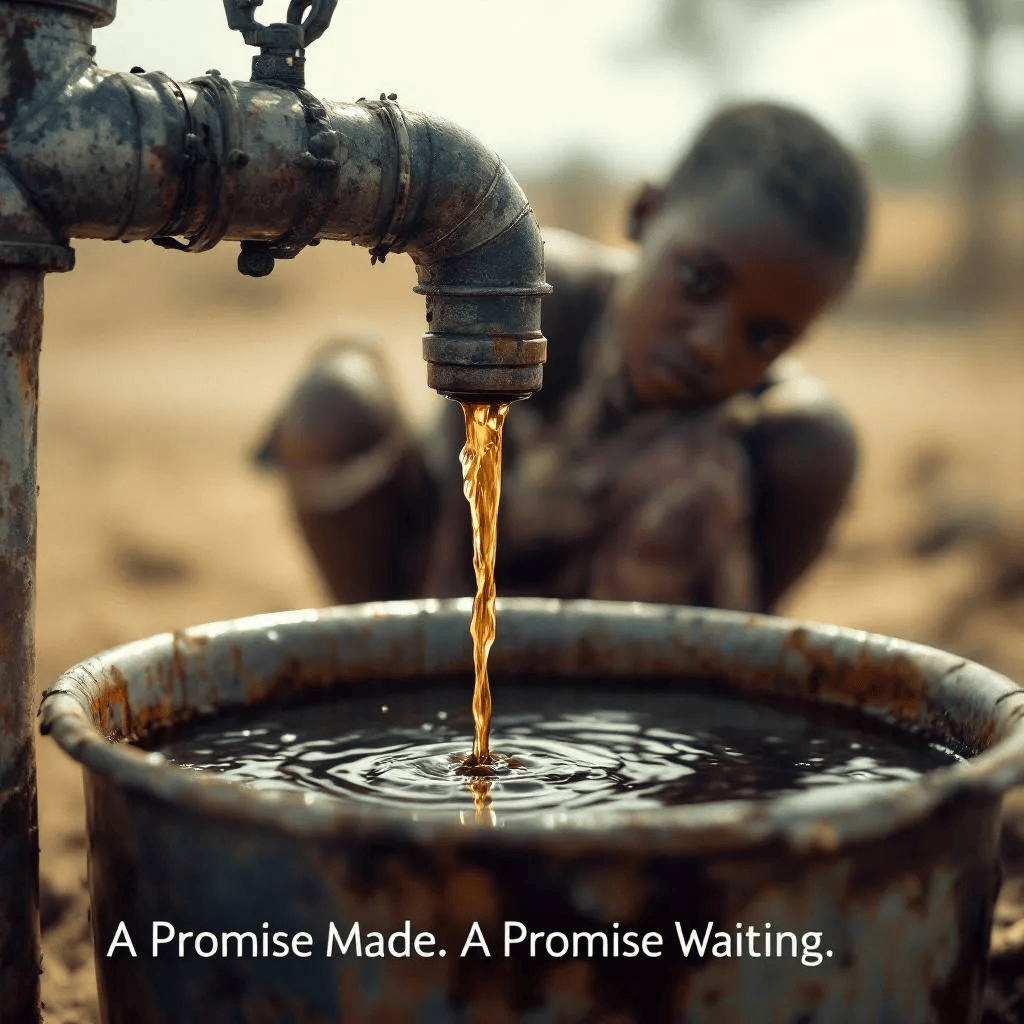
In 2023, when Governor Seyi Makinde was looking to be re-elected for a second term, he made a promise to the people, one that ignited hope in their hearts. He promised to upgrade the Eruwa Dam within one year of re-election and ensure that it provides clean water to the people the dam serves within 3 years.
It's 2025, over 2 years after he won that re-election bid and AdvoKC's Promise Ring under the Promise Tracker NG platform has rated the promise 'Broken' because the dam still lays forgotten and in a state of disrepair. The water is still brown. Mothers still walk long distances under the sun to fill buckets. Farmers watch their crops dry because irrigation pipes run empty, and children still drink what should have been purified. Hygiene and dignity are traded for survival. The dam that should have been a lifeline has become a reminder of neglect. The people who were hopeful when the Governor made that promise are now the ones paying the price for the Governor's broken commitment.

This is not merely a story about failed infrastructure; it’s a reflection of how policy promises become ghosts when political will fades. Water is more than a resource; it’s a constitutional right and a public health necessity that shapes health, education, and economic productivity. Each month the Eruwa Dam remains in disrepair, the people it was meant to serve lose time, money, and trust in governance itself. Nigeria’s National Water Policy and SDG 6 both emphasise access to clean, safe, and affordable water as a core government responsibility. Yet, the Eruwa Dam project exposes the gap between commitment and continuity, between campaign manifestos and policy implementation.
In policy terms, Oyo State’s Water Supply and Sanitation Reform Program should have positioned Eruwa as a key beneficiary. The plan exists on paper, but accountability fades in the absence of active citizen tracking and state transparency.
When leaders promise, they set public expectations, and those expectations shape trust. A broken promise on something as fundamental as water access ripples beyond Eruwa; it erodes civic faith in governance itself.
For every policy delayed, there’s a life affected. In Eruwa, the failure to deliver clean water has direct implications for public health waterborne diseases, child malnutrition, and loss of productive hours spent fetching water. These are not abstract consequences; they are the hidden costs of policy neglect.
Governor Makinde’s promise was not just a political statement; it was a social contract. The question today is simple: Will it be honoured?
Citizens are not asking for miracles; they’re asking for motion.
Because in a democracy, governance is measured not by words spoken during campaigns but by promises kept in office.
Track the Eruwa Dam promise and others at Promisetracker.ng and let your voice be the bridge between commitment and action.